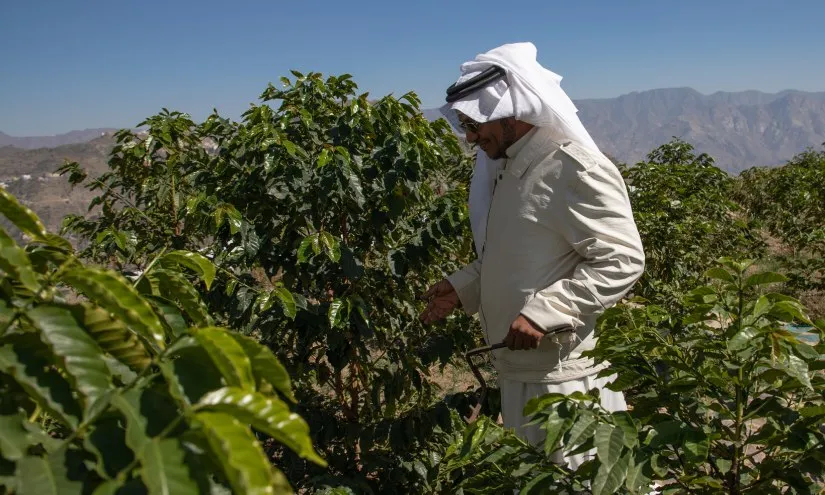Саудовская Аравия, осознавая неизбежный отход от эпохи ископаемого топлива, активно диверсифицирует свою экономику, чтобы обеспечить как внутреннее процветание, так и международную известность. В этом стремлении Государственный инвестиционный фонд (PIF), суверенный фонд благосостояния Саудовской Аравии, в мае 2022 года представил Saudi Coffee Company, вложив значительные 319 миллионов долларов в национальную кофейную индустрию в течение следующего десятилетия.
Уделяя пристальное внимание увеличению производства кофе арабика в южном регионе Джазан, правительство стремится увеличить годовой урожай с 800 до 2500 тонн. Это отражает характеристики уважаемого йеменского кофе и способствует стратегическому сближению с соседним регионом-производителем кофе. Ибрагим Саад, совладелец Torch Coffee Labs, ожидает, что инвестиции будут способствовать посадке 1,3 миллиона деревьев к 2025 году, что приведет к четырехкратному увеличению национального производства до примерно 40 000 мешков к 2028 году.
Чтобы укрепить эту инициативу, правительство предоставляет техническую и финансовую помощь фермерам и налаживает сотрудничество с международными организациями. Примечательно, что Саудовская Аравия присоединилась к Международному соглашению по кофе и намерена предоставлять техническую поддержку фермерам в сотрудничестве с МФСР.
Саудовская Аравия, известная своими богатыми традициями употребления кофе, за последние восемь лет стала свидетелем резкого роста популярности спешелти кофе. В 2022 году рынок фирменных кофеен вырос на 18,5%, насчитывая 3550 точек и обеспечивая 40% долю от более чем 8800 фирменных кофеен на Ближнем Востоке. В стране расположены пять из 20 крупнейших сетей кофеен Ближнего Востока, а местная компания Barns управляет более чем 500 магазинами, что делает ее второй по величине сетью после Dunkin’ Donuts.
Стремясь извлечь выгоду из этой тенденции, Saudi Coffee Company планирует направить средства не только на производство кофе, но и на импортные предприятия, операции по обжарке, кофейни и академии обучения бариста, создавая комплексные инвестиции в цепочку поставок.
Признавая проблему удержания фермеров в сельскохозяйственном секторе из-за привлекательности более прибыльных отраслей, таких как нефть и газ, правительство по-прежнему привержено возрождению кофейных ферм в южном регионе. Несмотря на нынешние скромные объемы производства, сторонники инициативы полагают, что со временем этот сектор возродится.
Более широкая стратегия Саудовской Аравии, воплощенная в «Видении 2030», позиционирует ее как ключевого игрока на мировом рынке. Страна стремится стать торговым центром Ближнего Востока, проводя различные социальные и экономические реформы, включая «гигапроекты», ориентированные на туризм и гостеприимство. Хотя скептики подвергают сомнению способность Саудовской Аравии конкурировать на мировом уровне с ее нынешними объемами добычи, сторонники выражают уверенность, что устойчивые инвестиции принесут результаты в ближайшие годы.
Поскольку Саудовская Аравия вступает в этот преобразующий путь, ее успех будет зависеть не только от удовлетворения внутреннего спроса на кофе, но и от получения международной поддержки и сотрудничества. Учитывая рост иностранных инвестиций и присутствие глобальных компаний в стране, Саудовская Аравия по-прежнему с оптимизмом смотрит на свои перспективы в развивающейся сфере кофейной индустрии. Следующие пять лет станут захватывающей главой в стремлении Саудовской Аравии занять видное место на мировом рынке кофе.
